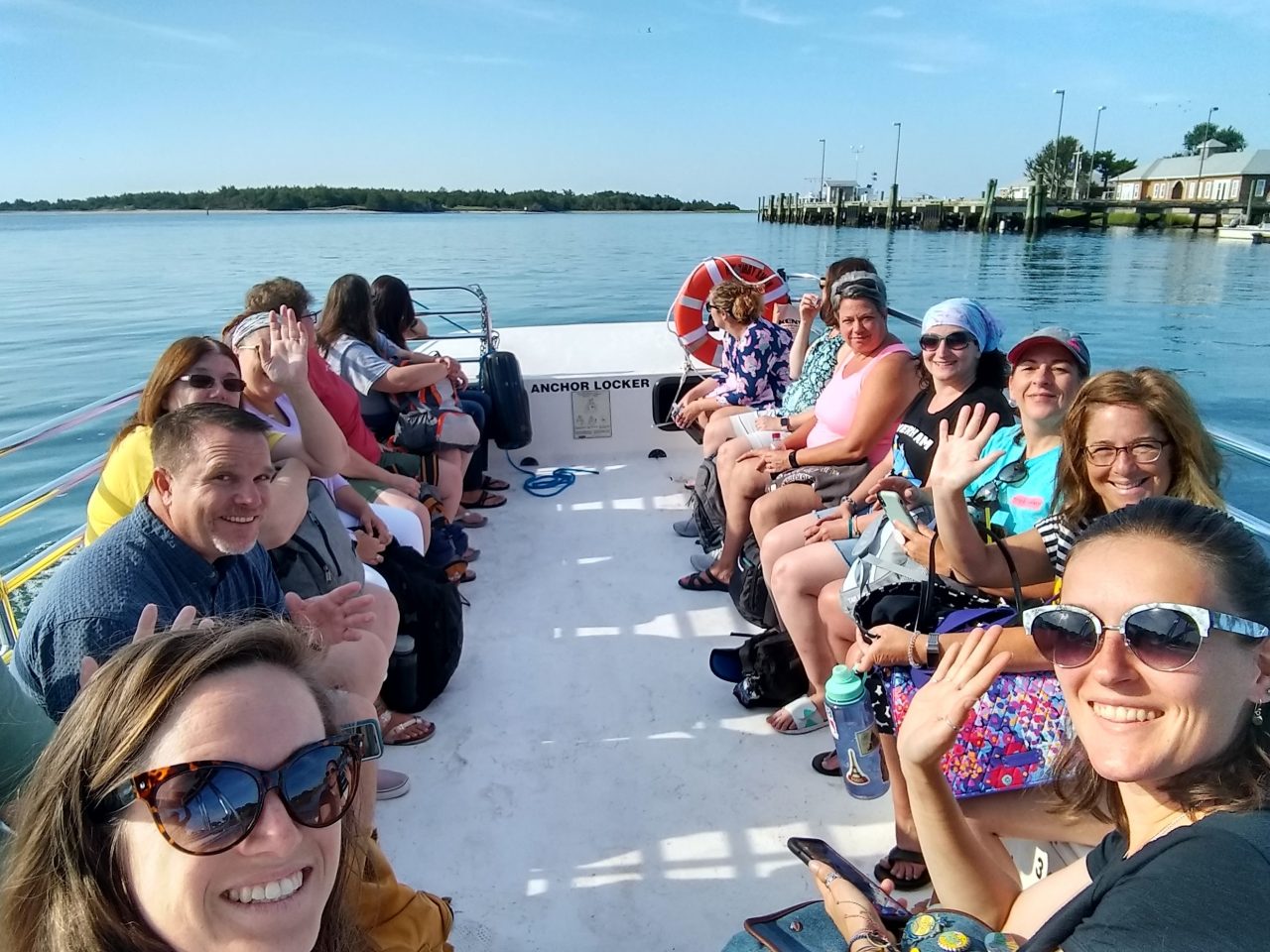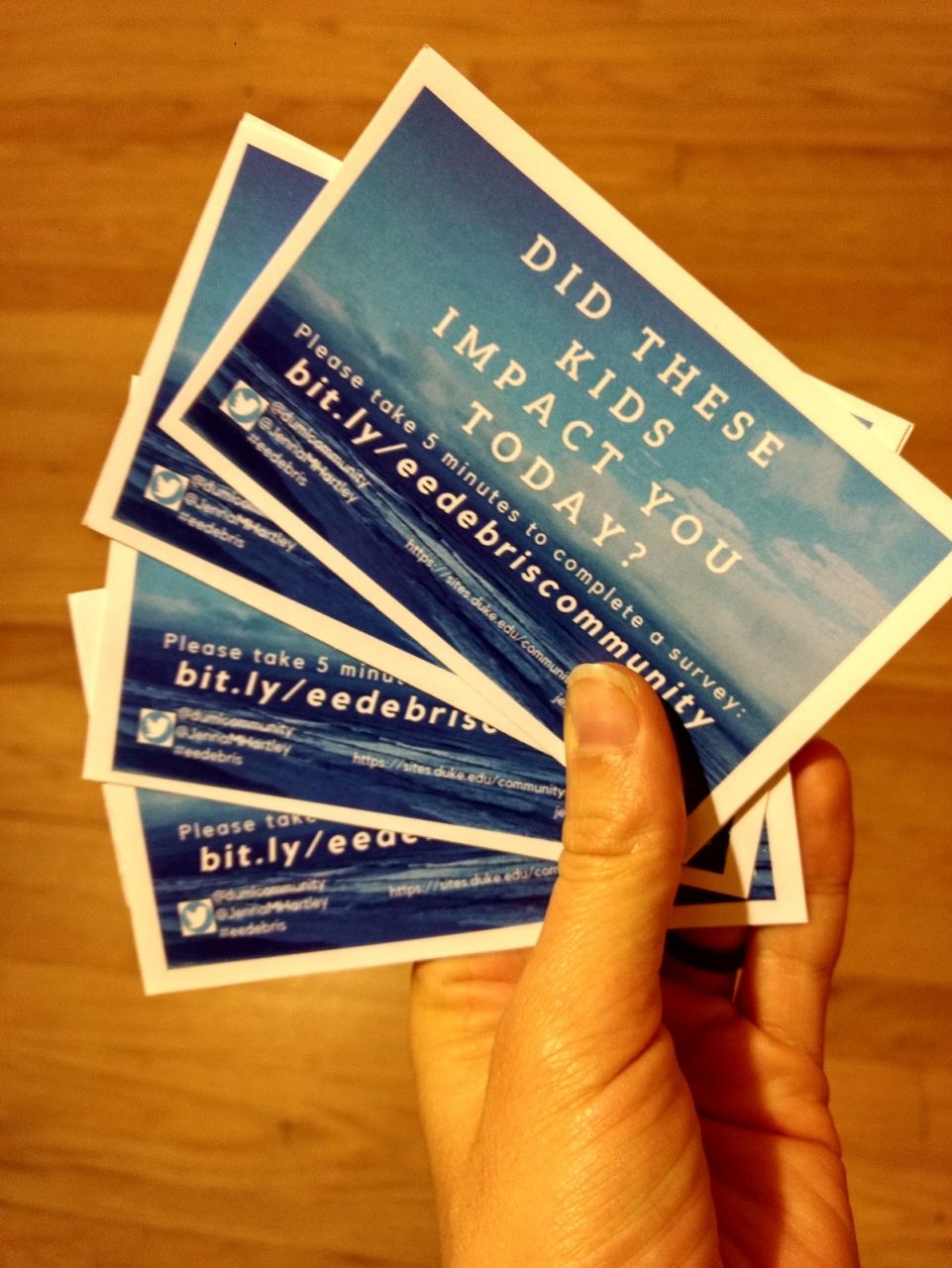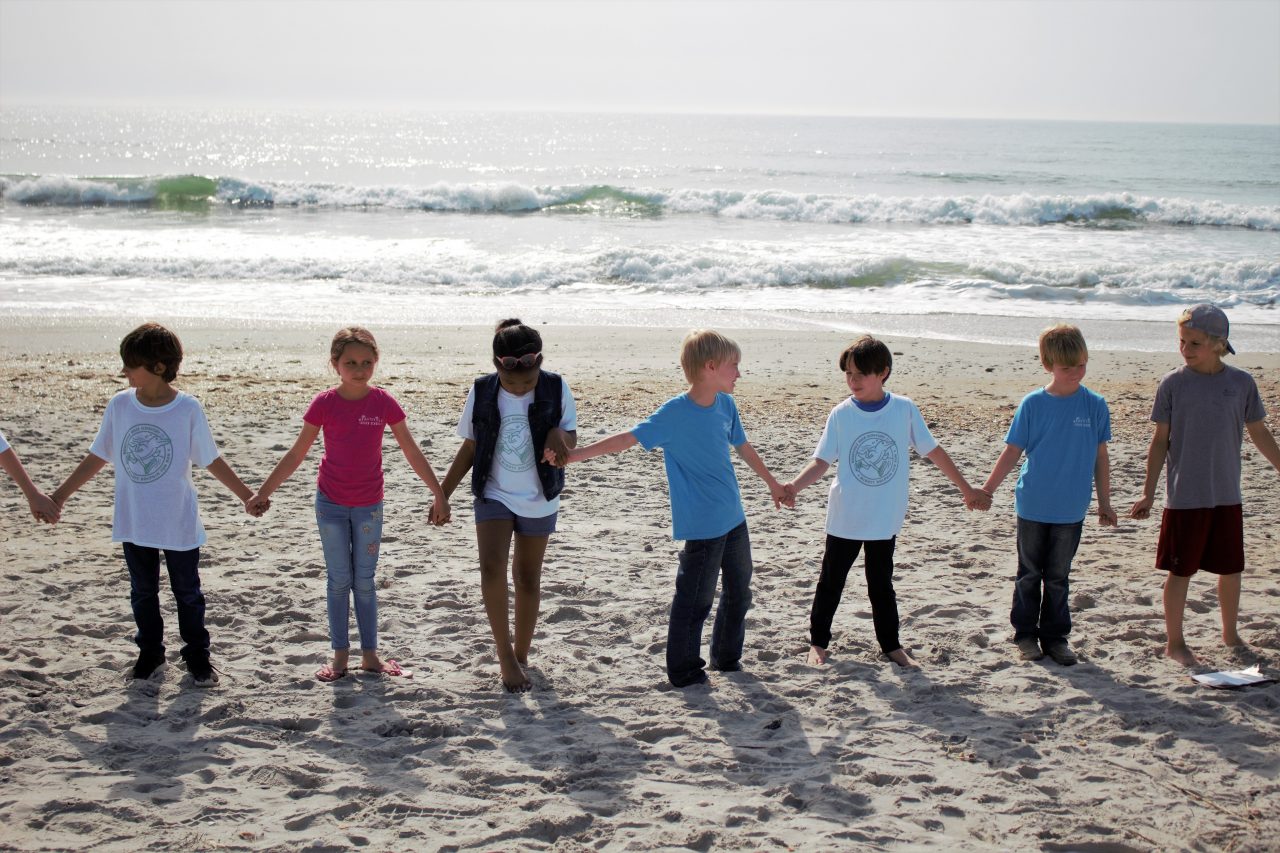This short video is a summary of a statewide marine debris program for fourth and fifth graders.
Our oceans are awash in debris, mostly plastic, but there’s a fair amount of Styrofoam, aluminum cans and cigarette butts in the blend. It’s a toxic mix for sea life.
An estimated 100 million marine animals die every year because of marine debris.
A recent peer-reviewed paper by North Carolina State University researchers may offer a way to raise public awareness about the dangers of marine debris and change behavior.
The paper, “Youth Can Promote Marine Debris Concern and Policy Support Among Local Voters and Political Officials,” published in the journal Frontiers in Political Science, suggests that young people have influence.
“Many of the most sweeping social movements throughout history have been youth-led, including those related to environmental challenges,” the study’s authors wrote.
The study with fourth and fifth graders seems to support the concept that intergenerational engagement can effect change in communities, although it is unclear how long those changes will continue, the study notes.
“As research on both the dynamics of intergenerational learning and strategies to address marine debris continue to emerge rapidly, there are multiple avenues for future research,” according to the paper.
To understand the influence youth can have on adult awareness and behavior, researchers created a yearlong course of instruction. The curriculum for fourth and fifth grade teachers was written by educators and meets state science standards. There’s a combination of classroom work, field research, a creative art project and presentation, homework that engages parents, and documentation of the work, including a student film of what the kids discovered along the way.
Working with a number of school districts, the curriculum was introduced into 32 counties across the state and covered two school years, 2018-19 and 2019-20.
“We had Carteret and Onslow counties. We had counties in the Piedmont including Robeson, Wake, Orange, and then there’s a couple farther west … It really was spread across the whole state,” said Jenna Hartley, the study’s lead author. Hartley is a doctoral student in the North Carolina State University Department of Parks, Recreation and Tourism Management.
The first step was training the teachers.
“We brought them out to the Duke University Marine Lab (in Beaufort) for two nights. We took them to the Rachel Carson Reserve, and they picked up trash there,” Hartley said. “Some of these teachers (said), ‘I haven’t been to the beach in 12 years.’ It was really kind of a beautiful professional development workshop. We valued their expertise and valued them as professionals. I think that carried a lot of weight.”

Once introduced into the classroom, the students took over.
“I’m not going to get the quote exactly right,” Hartley said, “but it was along the lines of, ‘I’ve never taught like this before, and I can’t believe how much of it has just been me trying to get out of their way.’”
As successful as the curriculum appeared to be in the classroom, it was in public engagement that some of the most notable effects of the program were seen.
Surveys were conducted during the eight, in-person events held during the 2018-19 school year. During the following year, because of the COVID-19 pandemic, only one in-person event was held. Students developed online public service announcements that researchers used to recruit local officials. They contacted 1,984 local officials via email for online events.

Researchers during the in-person events handed out about 300 survey cards. For both in-person and online events, 65 voters and 107 local officials responded to questions about levels of their marine debris concern and the likelihood of their policy support.
In examining the data, researchers were able to track reactions from the adults that came into contact with the students.
They found that adults, after hearing from the students either in person or online, reported increased concern about marine debris and support for policies to address the issue. Although officials also generally showed support for policies that address marine debris, their support was more cautious.
“Together with some of our other work on kids influencing adults, this study is pointing to a real potential for kids to have a powerful seat at the table,” Kathryn Stevenson, assistant professor of parks, recreation and tourism management at North Carolina State University, said in a statement. “Kids can play a real and needed part in the political process, especially if we’re making decisions about their futures. We need to consider their perspectives.”

Hartley was careful in addressing why that seems to be the case, but her answer underscores the complexity of moving action to policy.
“It’s just a hypothesis based on the data, but perhaps the local officials understand a little more of the processes and bureaucracy involved with actually moving the needle on policy, and that could have impacted their answers,” she said.
The report also found that “political polarization would lessen among all adults. Specifically, polarization decreased around marine debris concern, but differences were not detected for polarization in support of policies to address marine debris.”
One finding that may seem counterintuitive was that family or personal connections with the students appear to have little or no effect on how adults reacted to concerns about marine debris.
“Surprisingly, (that) only 12% said that they (adults) previously had some type of relationship to the student is remarkable. And what’s cool about this is that students can be impactful,” Hartley noted.
There is still work to be done, particularly in measuring the impact of youth engagement over time, Hartley said, but what has been learned about youth involvement makes her hopeful.
“We have a lot to learn about how powerful the effect is, how long the effects last, how big of a difference it can make, and quite frankly, with whom,” Hartley said. “But so far the results are really encouraging, especially for kids to know that they have power and even educators and parents should understand that kids can have a really important voice in their communities.”
"can" - Google News
May 26, 2021 at 11:00AM
https://ift.tt/2QTtnsr
Students can inspire adults to fight marine debris: Study - Coastal Review Online
"can" - Google News
https://ift.tt/2NE2i6G
https://ift.tt/3d3vX4n
Bagikan Berita Ini














0 Response to "Students can inspire adults to fight marine debris: Study - Coastal Review Online"
Post a Comment